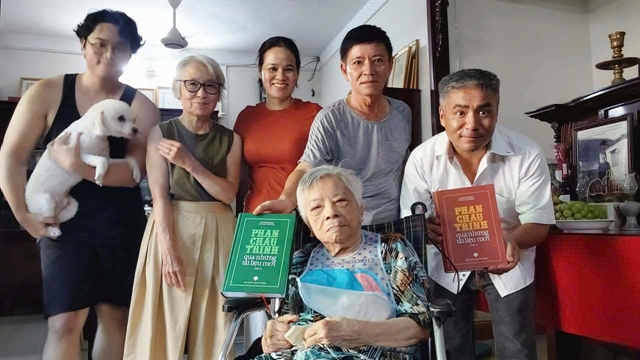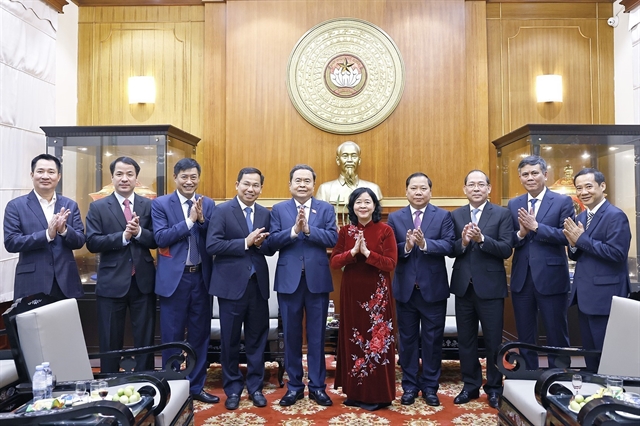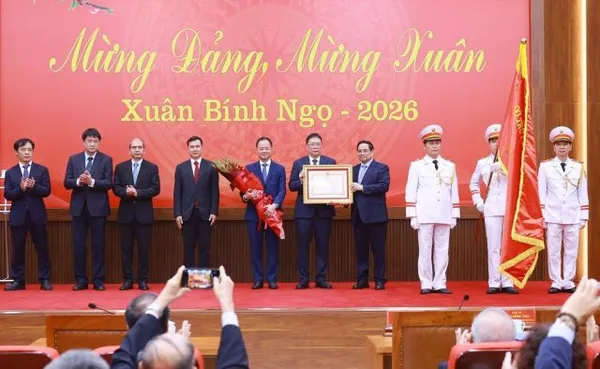_med.jpg) Economy
Economy

 |
| A woman viewing the online bidding system. The Law on Bidding must be amended to increase the efficiency of bidding and improve transparency. — Photo tapchitaichinh.vn |
HÀ NỘI — National Assembly (NA) deputies agreed it was necessary to amend the Law on Bidding to increase the efficiency of bidding and contribute to improving transparency as well as preventing improper use of the State budget, NA Vice Chairman Nguyễn Đức Hải said at the fourth session of the 15th NA on Tuesday.
Hải said that the draft law would be completed and submitted to the NA for approval at the fifth session.
Minister of Planning and Investment Nguyễn Chí Dũng said that as the Law on Bidding affected many aspects of society, careful consideration must be given to the amendments to ensure the harmonisation of interests between the State and contractors.
The law would be improved to create convenience and openness for investors when making procurement of bidding packages but at the same time ensure strict management, and prevent profiteering and corruption, Dũng stressed.
Dũng said that the draft added regulations to prevent fraud and corruption in bidding, including details about bidding documents, promoting online bidding to ensure publicity and transparency and making public contractor selection process on the national bidding network.
In addition, a national database on contractors would be established to access the credit of contractors and the quality of the goods, which would help improve the State management efficiency.
Agreeing with the comments of several NA deputies, Dũng said that it was important to raise clear and detailed regulations about bidding and procurement of drugs and medical equipment.
Regarding the comment of Nguyễn Trí Thức from HCM City's NA Delegation about setting a separate charter in the Law on Bidding for medical bidding, Dũng said that this must be carefully considered. He stressed that careful review would be carried out comprehensively to create favourable conditions for the procurement of medical equipment.
Regarding the simplification of bidding procedures to save time and reduce costs, Dũng said that the draft was compiled in the direction of accelerating the application of online bidding and eliminating procedures at intermediate stages.
Hoàng Văn Cường from Hà Nội's Delegation said that the biggest limitation in bidding recently was the very small number of bid participants, even online bidding, just more than one set of dossiers on average, which proved that the competition in bidding was not high.
Cường said that this could be caused by some information in the bidding documents which aimed to limit the participation of bidders.
Thus, it was necessary to have a separate charter in the Law on Bidding regulating details of bidding documents, he said.
Also in the morning, NA members voted to approve the Resolution on piloting several specialised mechanisms and policies for the development of Buôn Ma Thuột City, Đắk Lắk Province with an approval rate of 94.38 per cent.
The resolution would come into effect from the beginning of next year and last for five years.
The specialised policies for Buôn Ma Thuột City, including budget management mechanisms, incentives of corporate income tax and individual income tax to attract investments and talent aimed to make the city a centre of the Central Highlands region.
In the afternoon, NA passed the Law on Prevention and Combat of Money Laundering with the agreement of 483 NA members, or 96.99 per cent.
The Law on Prevention and Combat of Money Laundering included four chapters with 66 articles.
Chairman of NA Economic Committee Vũ Hồng Thanh said that the NA Standing Committee proposed the Government soon complete the legal framework for cryptocurrency and virtual assets to prevent and minimise risks of money laundering. — VNS

_med.jpg)


